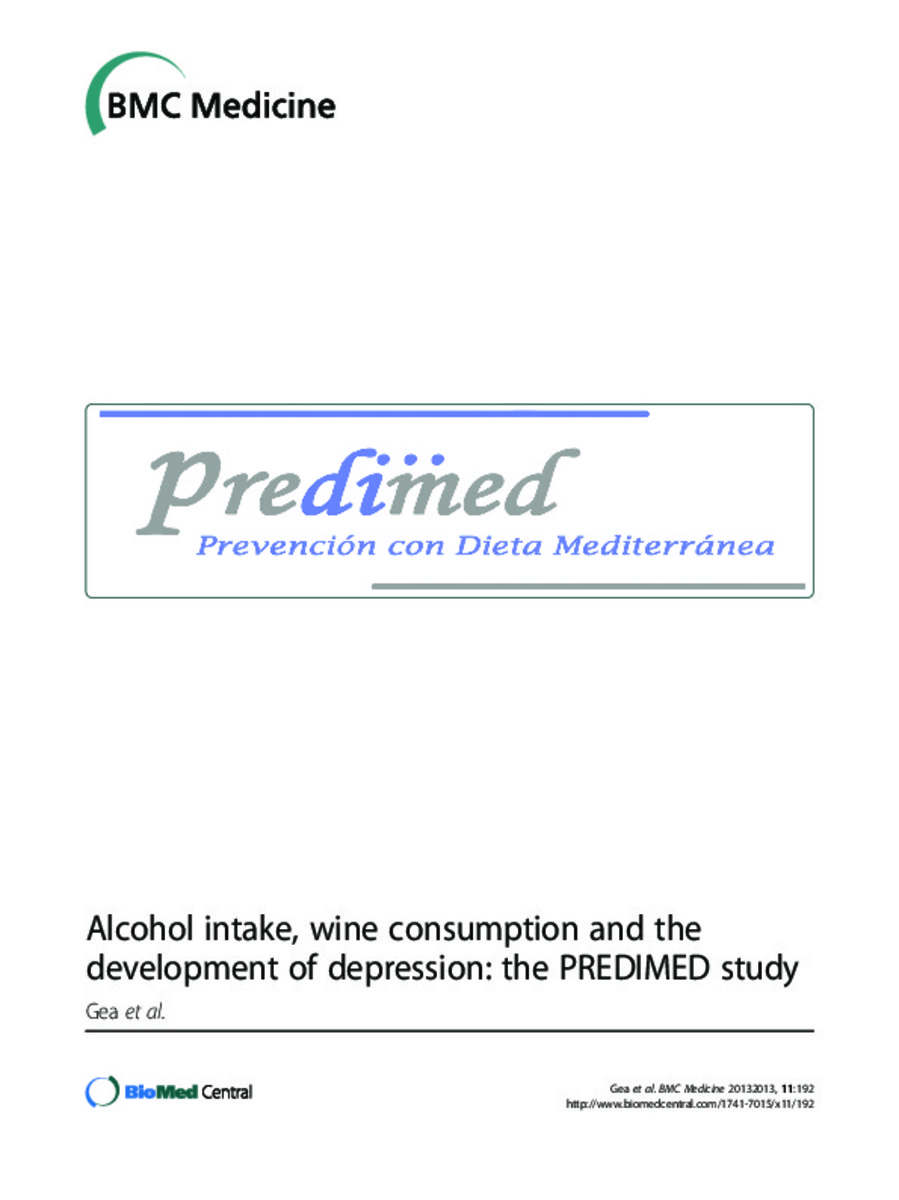Full metadata record
| DC Field | Value | Language |
|---|---|---|
| dc.creator | Gea, A. (Alfredo) | - |
| dc.creator | Beunza, J.J. (Juan José) | - |
| dc.creator | Estruch, R. (Ramón) | - |
| dc.creator | Sanchez-Villegas, A. (Almudena) | - |
| dc.creator | Salas-Salvado, J. (Jordi) | - |
| dc.creator | Buil-Cosiales, P. (Pilar) | - |
| dc.creator | Gomez-Gracia, E. (Enrique) | - |
| dc.creator | Covas, M.I. (María Isabel) | - |
| dc.creator | Corella, D. (Dolores) | - |
| dc.creator | Fiol, M. (Miquel) | - |
| dc.creator | Aros, F. (Fernando) | - |
| dc.creator | Lapetra, J. (José) | - |
| dc.creator | Lamuela-Raventos, R.M. (Rosa Maria) | - |
| dc.creator | Wärnberg, J. (Julia) | - |
| dc.creator | Pinto, X. (Xavier) | - |
| dc.creator | Serra-Majem, L. (Luis) | - |
| dc.creator | Martinez-Gonzalez, M.A. (Miguel Ángel) | - |
| dc.date.accessioned | 2014-04-25T14:43:24Z | - |
| dc.date.available | 2014-04-25T14:43:24Z | - |
| dc.date.issued | 2013 | - |
| dc.identifier.citation | Gea A, Beunza JJ, Estruch R, Sánchez-Villegas A, Salas-Salvadó J, Buil-Cosiales P, et al. Alcohol intake, wine consumption and the development of depression: the PREDIMED study. BMC Med 2013 Aug 30;11:192 | es_ES |
| dc.identifier.issn | 1741-7015 | - |
| dc.identifier.uri | https://hdl.handle.net/10171/35810 | - |
| dc.description.abstract | Alcoholic beverages are widely consumed. Depression, the most prevalent mental disorder worldwide, has been related to alcohol intake. We aimed to prospectively assess the association between alcohol intake and incident depression using repeated measurements of alcohol intake. METHODS: We followed-up 5,505 high-risk men and women (55 to 80 y) of the PREDIMED Trial for up to seven years. Participants were initially free of depression or a history of depression, and did not have any history of alcohol-related problems. A 137-item validated food frequency questionnaire administered by a dietician was repeated annually to assess alcohol intake. Participants were classified as incident cases of depression when they reported a new clinical diagnosis of depression, and/or initiated the use of antidepressant drugs. Cox regression analyses were fitted over 23,655 person-years. RESULTS: Moderate alcohol intake within the range of 5 to 15 g/day was significantly associated with lower risk of incident depression (hazard ratio (HR) and 95% confidence interval (95% CI) = 0.72 (0.53 to 0.98) versus abstainers). Specifically, wine consumption in the range of two to seven drinks/week was significantly associated with lower rates of depression (HR (95% CI) = 0.68 (0.47 to 0.98)). CONCLUSIONS: Moderate consumption of wine may reduce the incidence of depression, while heavy drinkers seem to be at higher risk. | es_ES |
| dc.language.iso | eng | es_ES |
| dc.publisher | BioMed Central | es_ES |
| dc.rights | info:eu-repo/semantics/openAccess | es_ES |
| dc.subject | Wine | es_ES |
| dc.subject | Alcohol | es_ES |
| dc.subject | Depression | es_ES |
| dc.subject | Cohort | es_ES |
| dc.title | Alcohol intake, wine consumption and the development of depression: the PREDIMED study | es_ES |
| dc.type | info:eu-repo/semantics/article | es_ES |
| dc.identifier.doi | http://dx.doi.org/10.1186/1741-7015-11-192 | es_ES |
Files in This Item:
Statistics and impact
Items in Dadun are protected by copyright, with all rights reserved, unless otherwise indicated.






